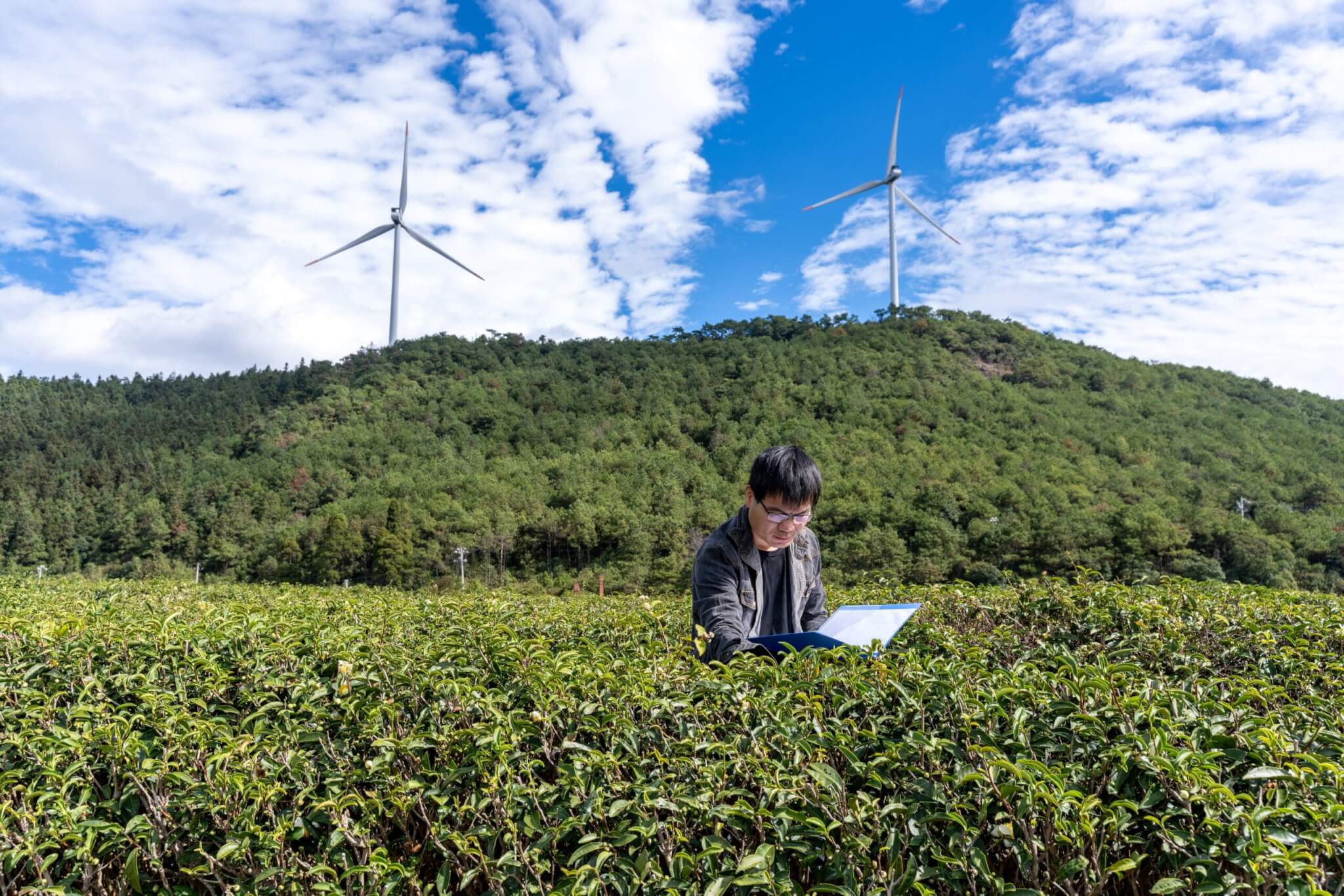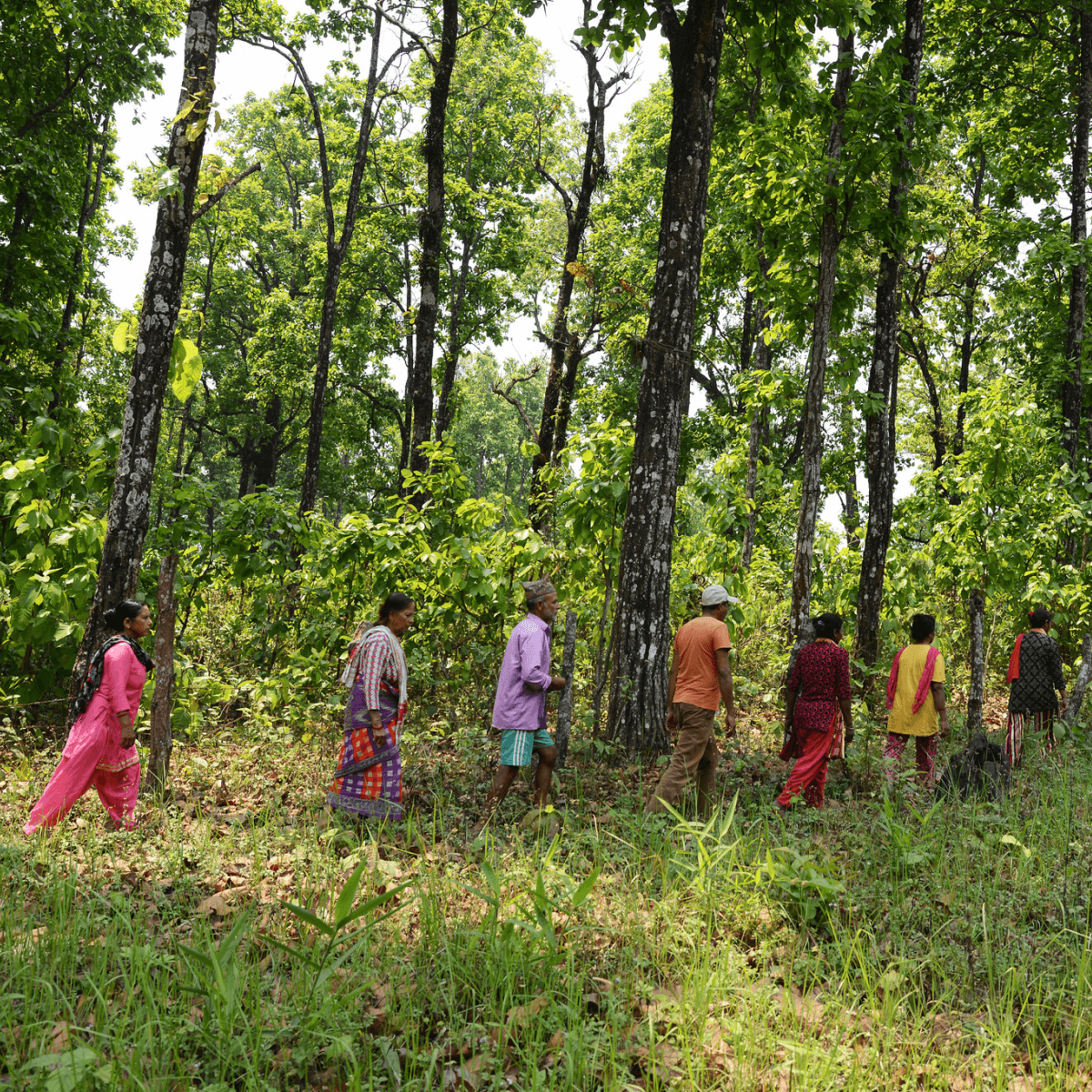
Philanthropy can help catalyze a shift toward more sustainable, just, and resilient systems, societies, and economies.
Imagine what the world could look like in 2050. Our power grids run on renewable energy. Everyone has access to the energy they need to cook, light their homes, and stay cool. Almost every coal plant and oil refinery on the planet has been retired. Electric public transport and cars take us where we need to go while keeping the air we breathe clean. Indigenous and local communities have the legal recognition and support they need to nurture healthy forests. The world has transitioned to a global green economy that enables healthy lives, good jobs for all, and a thriving planet.
In the words of the poet Lucille Clifton, “We cannot create what we cannot imagine.” That is why I’m proud to introduce ClimateWorks Foundation’s new series of impact stories, which spotlights a diverse and expanding community of global changemakers driving transformative climate action and illustrates how philanthropy has supported their efforts. Philanthropy is increasingly mobilizing to support bold climate action, as evidenced by the entry of more funders into the arena, a growing community of grantees, and a tripling of foundation funding since 2015. While the demands of the climate crisis are daunting, those implementing solutions on the ground give us reason to hope.
The time to act is now
The urgency has never been greater to replicate the climate successes supported by philanthropy as widely as possible. Climate change is not a distant concern but a current reality affecting communities worldwide. Global climate initiatives are falling short of Paris Agreement targets and philanthropic funding for mitigating climate change saw a disappointing plateau last year.
Even so, there is progress to celebrate and build upon. In 2014, our trajectory pointed to a planet 3.7° C warmer than pre-industrial levels by the century’s end. Current policies have successfully altered our course, positioning us toward an approximately 2.5° C rise. The progress so far is pivotal, but a future above 1.5° C of warming would still be catastrophic. More action is needed to accelerate climate solutions at the speed and scale that will ensure a healthy and equitable future for all.
The climate crisis calls for unprecedented collaboration among governments, the private sector, and civil society. Philanthropy is uniquely positioned to help catalyze the transformative shift we need toward more sustainable, just, and resilient energy and food systems, societies, and economies. Philanthropy can be risk-taking and nimble, trying different approaches and pivoting quickly in response to new challenges or opportunities. Philanthropy can convene disparate actors and mobilize resources for those implementing change on the ground in pursuit of a more prosperous future for all. Philanthropy is also able to both invest in long-term horizons and support immediate needs. Additionally, unlike the private sector, philanthropy is willing to invest for impact rather than financial return alone, supporting geographies where the need is highest and catalyzing additional investment from the public and private sectors.



A roadmap for driving bold climate action
Philanthropy has already played a significant role in supporting bold climate action — engaging with efforts to advance renewable energy, accelerate the adoption of clean transportation, advocate for Indigenous and local land rights, tackle super-pollutants, and achieve clean cooling for all. For example, since 2017, 57 countries have developed new policies and programs dedicated to climate-friendly, energy-efficient cooling technology based on models driven by the Clean Cooling Collaborative, a philanthropic initiative. With support from the Beyond Coal campaign, at least 40% of coal-fired power plants in the United States and 50% in Europe have been retired. Electric vehicles have taken off faster than expected, with exponentially growing sales in some of the highest-emitting regions. The Drive Electric Campaign, a network of more than 100 organizations around the world, has helped accelerate EV adoption in these regions by building political will and technical capacity. Philanthropy has supported efforts to elevate Indigenous and local community land rights on the global stage, leading to historic levels of support through the Indigenous Peoples and Local Communities’ Forest Tenure Pledge announced at COP26. A growing carbon dioxide removal movement has received philanthropic support, which has helped the sector scale responsibly and thoughtfully. Philanthropy also helped shape the historic Inflation Reduction Act — the boldest climate action from the United States to date — and has a critical role to play in its implementation.
Our growing collection of impact stories, like the ones noted above, highlights the replicable, intersectional, and collaborative approaches that were essential to these philanthropic successes and others like them. We will continue to bring stories from people implementing change on the ground as well as both new and experienced climate funders mobilizing resources across a range of geographies. We hope these stories will illuminate the expansive efforts that have already driven climate progress and ultimately inspire the philanthropy community to keep pushing for even bolder action — individually, collaboratively, and with partners through innovative new efforts like the Giving to Amplify Earth Action (GAEA) Initiative, the IKEA Foundation’s Just Transition Fund, and the Philanthropy for Asia Alliance. Please stay tuned for more stories in the months ahead.
Reach out to us to share your success stories or to learn how you can contribute to advancing climate action, and read more climate philanthropy impact stories here.



